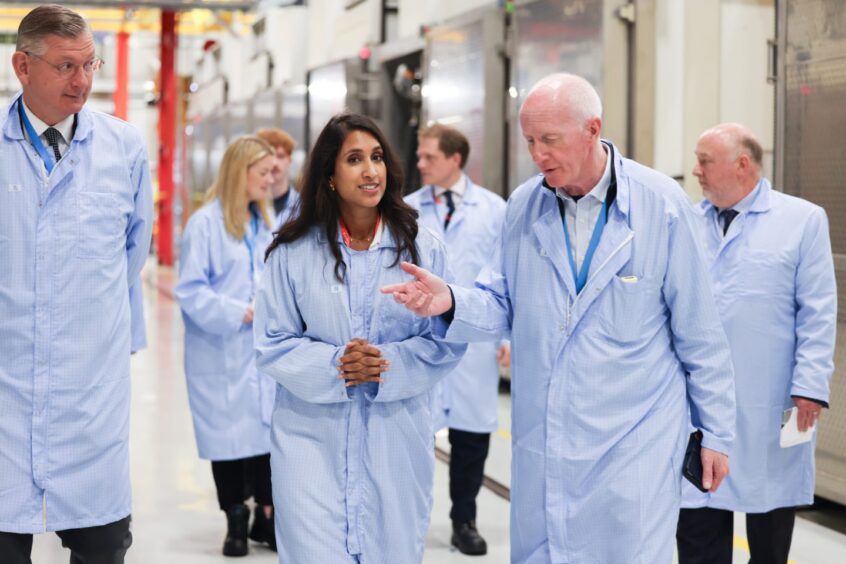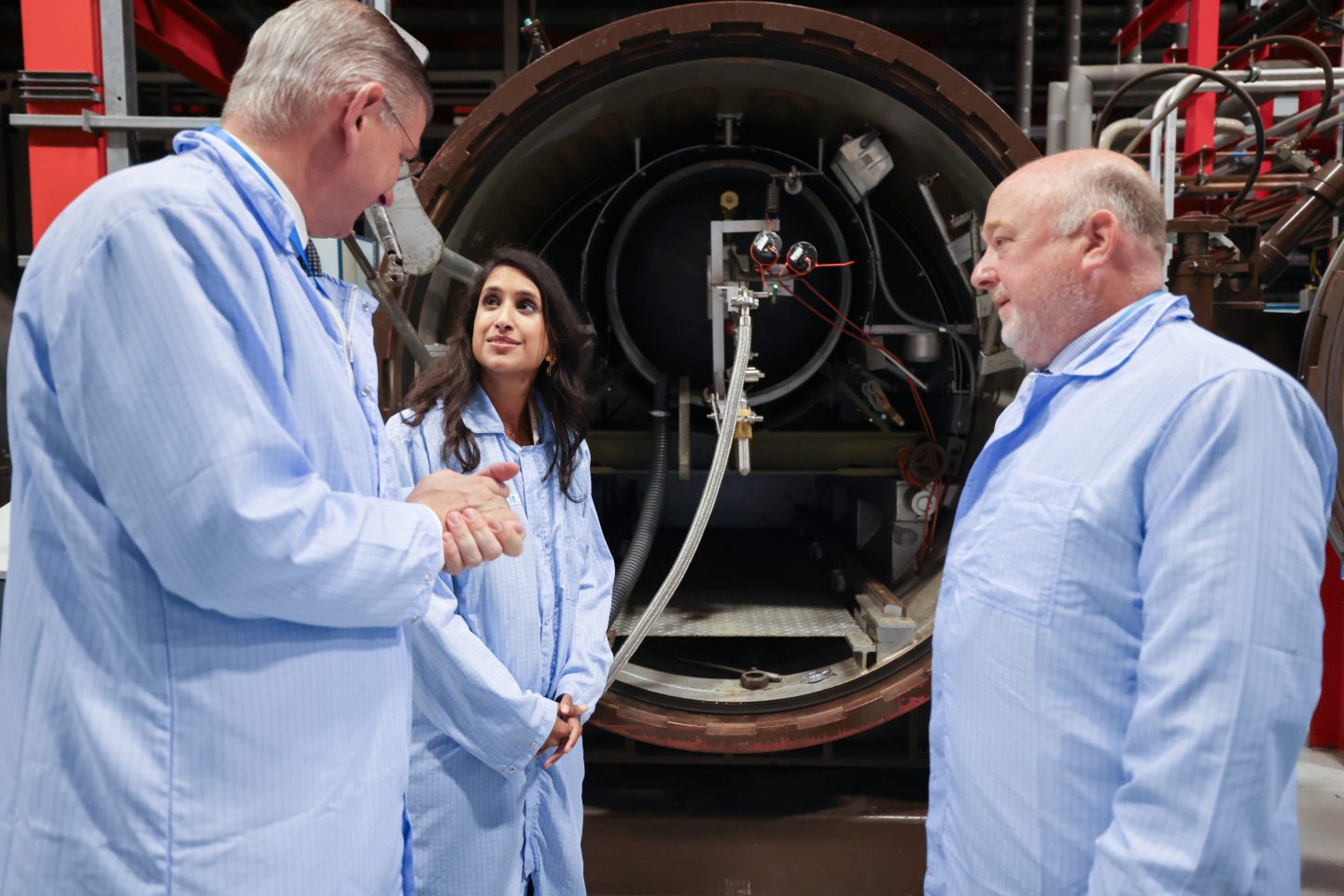
The UK government has awarded a £196 million grant to build the first next generation nuclear fuel facility in Europe in a bid to further isolate Russia from global energy markets.
The grant will be provided to Urenco to build a uranium enrichment plant in a move the government said will boost energy security and lower energy bills.
The facility is set to begin producing fuel by 2031, which the government said would put an end to Russia’s position as the only commercial producer of high-assay low enriched uranium (HALEU).
The new facility, located in Capenhurst in Cheshire, will support around 400 jobs and position the North-West of England as a “world leader” in nuclear fuel production, the government said.
Prime Minister Rishi Sunak said building a uranium enrichment plant in the UK is “essential”.
“Russia has been the sole provider of this powerful nuclear fuel for too long and this marks the latest step in pushing him out of the energy market entirely,” Mr Sunak said.
“The wider future of British nuclear remains a critical national endeavour – guaranteeing nuclear and energy security, and reducing energy bills for Brits.”
On a visit to the Urenco site, UK energy secretary Claire Coutinho said the government won’t let Russian president Vladimir Putin “hold us to ransom on nuclear fuel”.
“Backing Urenco to build a uranium enrichment plant here in the UK will mean we are the first European nation outside Russia to produce advanced nuclear fuel,” Ms Coutinho said.
“This will support hundreds of new jobs, bring investment for the people in Cheshire and is a huge win for energy security at home and abroad.”
Urenco HALEU facility
In a statement, the UK government said HALEU is needed to power most advanced modular nuclear reactors, a key part of meeting its ambition to quadruple nuclear capacity by 2050.
Like small modular reactors, the government said HALEU can be made in factories and transform how power stations are built by making construction faster and less expensive.
These reactors are more efficient and use novel fuels, coolants, and technologies to generate low-carbon electricity.
Their high heat output means they can also be used to decarbonise industry, produce hydrogen for transport or heat for homes.
The government said Urenco’s facility will have the capacity to produce up to 10 tonnes of HALEU per year by 2031.
When fabricated into fuel, the government said ten tonnes of HALEU could contain as much energy as over one million tons of coal.
Climate and energy security
Urenco CEO Boris Schucht said the nuclear industry has a responsibility to help governments and industry to achieve climate change and energy security goals.
“We welcome this government investment, which will help accelerate the development of a civil HALEU commercial market and in-turn the development of the next generation of nuclear power plants,” he said.
“These plants will have even higher safety standards and lend themselves to quicker licensing and construction processes.”
Nuclear Industry Association chief executive Tom Greatrex said: “This investment will enable the UK to fuel advanced reactors around the world, building on our existing capabilities to strengthen energy security for our allies while reducing their reliance on Russia.
“Urenco at Capenhurst is at the very forefront of the UK’s capability, with this new facility bringing opportunities for the supply chain, new jobs and investment in the North West of England.”
The UK government’s plans to kickstart a small modular reactor (SMR) industry in Britain is also having an impact on the offshore sector.
North Sea operator Viaro Energy recently announced it is considering using SMRs to decarbonise its offshore oil and gas assets.
 © Supplied by DESNZ
© Supplied by DESNZ